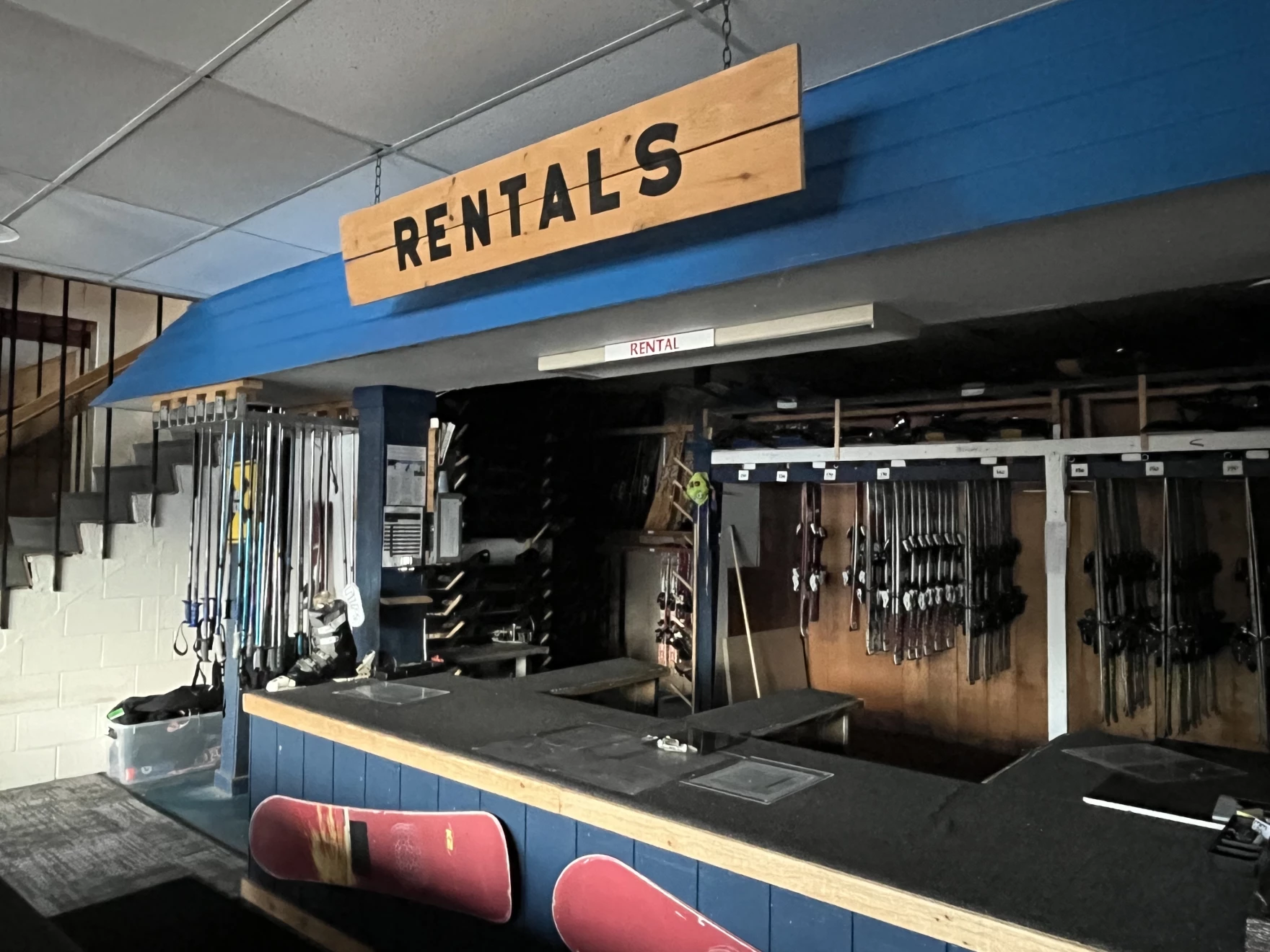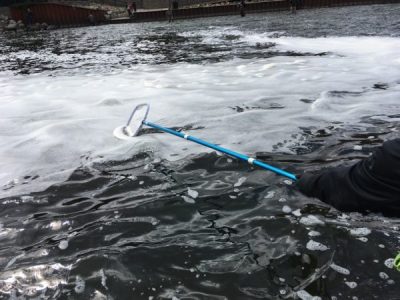
By Izzy Ross, Interlochen Public Radio
This coverage is made possible through a partnership with IPR and Grist, a nonprofit independent media organization dedicated to telling stories of climate solutions and a just future.
A grassy, mud-streaked ski hill.
Snowmobile trails where dirt and fall leaves were still visible.
A record high of 73 degrees in Traverse City in late February.
This winter was extremely tough for snow-based businesses across northern Michigan and the Midwest.
Gov. Gretchen Whitmer outlined just how difficult it was in a letter on Thursday to heads of Congress, the Small Business Administration and the Federal Emergency Management Agency. In it, she asked for more ways to provide funding to businesses that struggled with the high temperatures and lack of snow.
Last month, Whitmer and other state lawmakers encouraged businesses in Michigan counties under federal drought declarations to apply for economic relief through the Small Business Administration.
Businesses in 43 counties can now apply for Economic Injury Disaster Loans through the SBA. That includes many in northern Michigan and the Upper Peninsula.
But some parts of the state can’t tap into that aid, and with warm winters expected to continue, Whitmer said businesses need better access to federal assistance.
“The truth is we do not have a reliable or well-tailored tool for federal relief for businesses devastated by unseasonably warm winters,” she said.
For instance, Whitmer said Mount Bohemia Ski Resort in Keweenaw County saw a more than 60% decrease in revenue but can’t access federal loans, while businesses in most other U.P. counties can.
A warm winter
High temperatures and low snow made this season exceedingly difficult for many businesses that rely on tourism in the state. And the ripple effects can be felt throughout communities.
“Winter resorts, ski areas, hotels, lodging properties, restaurants, grocery stores – everything that is associated with travelers visiting our communities across the state for winter tourism were definitely impacted significantly this year,” said Nick Nerbonne, who directs industry relations for Travel Michigan, part of the Michigan Economic Development Corporation.
Visitors spent $27.3 billion in the state in 2022, according to the corporation’s most recent report on tourism.
To convince visitors that Michigan was still a place to pursue snow-related activities, Nerbonne said they highlighted the snow-making abilities at certain ski resorts this year.
Meanwhile, he said, places that rely on natural snow may have been especially hard-hit.
That includes “northern Michigan and the Upper Peninsula, which have a lot of groomed snowmobile trails that draw a lot of visitors to come ride those trails, cross country skiing, those types of activity that depend on natural snow,” he said.
So, Travel Michigan is shifting its messaging for winter tourism to include activities like fat-tire biking and using trails for hiking instead of snowshoeing. And Nerbonne said businesses have been receptive to changing their approaches.
“We would definitely recommend that businesses look towards more seasonal options that are not dependent upon weather – things to make them more resilient,” he said.
In the letter, Whitmer requested “regulatory or legislative solutions” to expand ways for governments to access federal aid and offered to connect lawmakers and administrators with businesses and governments.
“The drought declaration path is not a reliable or accurate measure for the problems these communities are facing,” she writes. “And with the impacts of climate change only suggesting that this problem could worsen, I am seeking your help now in creating lasting solutions for the decades ahead.”
Catch more news at Great Lakes Now:
Lake Superior is warming fast. Its national parks are starting work to cut fossil fuels
Warm winters are a wet blanket for small ski slopes in northern Michigan
Featured image: The empty ski rental desk at Mt. Holiday in Traverse City, on Feb. 8, 2024. That day, the National Weather Service recorded a high of 61 degrees. (Photo: Izzy Ross/IPR News)




